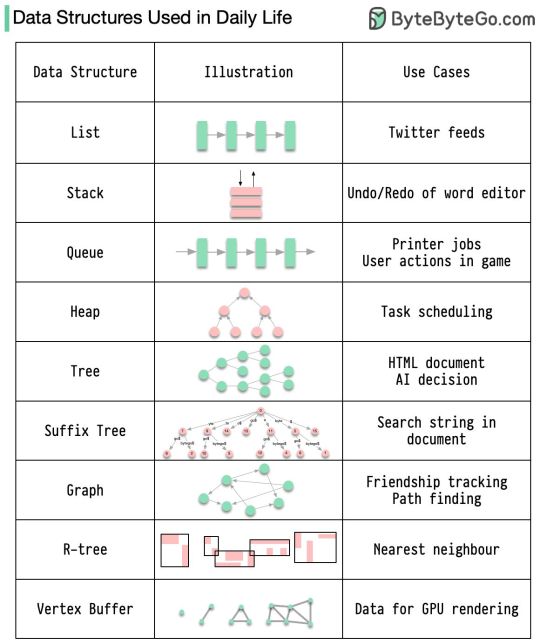Text
i love the cry on my guitar mv comment section LMFAO













66 notes
·
View notes
Text
22 notes
·
View notes
Text
Sorry but Andrew Scott and Paul Mescal will never be Jesse Eisenberg and Andrew Garfield on the Social Network press tour of 2010
52 notes
·
View notes
Text
i love tumblr bc i forget about it for months and then spend 30 hours straight reading gay mark zuckerberg posts
17 notes
·
View notes
Text
what the fuck gay little Facebook movie is ruining my life
139 notes
·
View notes
Text
69K notes
·
View notes
Text
despite cinema trying again and again, they truly will never be able to replicate whatever heartbreaking gayass je ne sais quoi the social network (2010) had
43 notes
·
View notes
Text
I am fucking IN LOVE with Allegro.
This library fucks so hard! It's so good!
If you are doing graphics in C you should be using Allegro.
Miss me with that SDL bullshit Allegro is my new best friend.
18 notes
·
View notes
Text
How to Get Into Engineering & Survive - Real-Ass Tips From an Aggressively Anticapitalist Queer Chick
I thought I'd share some of my engineering / tech job tips - especially since a few of my nerd posts blew up and it looks like so many of y'all in my notes are trying to get into the field.
As a queer woman, it can be a lot to navigate. Plus having parents with blue collar jobs? A whole nother level of having to figure shit out.
Honestly after writing this, I think this applies to more than just engineering. If you're the first one in your family to get a white collar job, I think this stuff applies too!
LOOKING FOR A FIRST JOB:
Don't worry if you don't get a dream job right outta college, it's OK to get something to just pay the bills while you interview look for something better. Don't worry about "company loyalty" - these companies will have no loyalty to you either.
Join mentorship organizations in college, it's a lifesaver to be able to get advice from experienced people. I totally recommend the Society of Women Engineers / Women In CS for us girls.
Go to career fairs and some internships in college. Getting a job is just as much about who you know as what you know. Sure, get the diploma, try and get good grades, but the connections you make interning will help you more than any personal project or 4.0 GPA. Especially if you're a first gen college student.
Don't take unpaid internships, they're such a scam and the companies offering them are not ones you want to touch with a 10-ft pole. But do interview for them, they're great mock-interviews and its fun to decline their offers.
LOOKING FOR A JOB IN GENERAL:
Apply for any job that looks interesting, even if you don't think you qualify. You realize after some time in the industry that these job postings are basically like "We're looking for a unicorn, with the budget for a donkey" I don't think I've ever gotten a job where I met more than half of the "requirements" on the job description when I was hired.
The best time to look for a new job is when you already have a job. (Real fuckin helpful, I know) So if you can help it, don't quit a job without lining another up.
Applying for a job through one of those online application forms? It's a pain in the ass and your resume is likely to get ignored. Instead, if you can, get a personal referral from an employee. But that's hard to do especially if you're trying to break into the industry.
So another approach is to look up the company on LinkedIn, look through their employees until you find someone with the job title "recruiter", and send them your resume with a polite note expressing interest in their company. Their whole job is to find people to hire and they use LinkedIn to do that. You'll basically cut the line.
Don't work with recruiters from external recruiting agencies. Agency recruiters take a commission, and most companies will reduce your salary offer to compensate for that commission. If you got a message from an external recruiter, and it's a job you want, see the above bullet point.
Make a LinkedIn and keep your status as open to work, constantly. Recruiters will come to you, especially after you've gotten a couple years of experience. And it's always nice to have an inbox full of choices even if you're not actively looking. This will also help you get an idea if you're underpaid at work, if you're being recruited for much higher paid positions.
If you can go into interviews with the mindset of needing to be convinced to work for a company rather than eager to start, you'll be shocked what they can find in the budget to convince you with. I like to take interviews occasionally, even if I like my job, just to see what companies will come up with to convince someone who loves their job to come work for them.
HOW TO DODGE A BULLET
I'm going to be blunt - a lot of engineering companies suck ass to work for. And not just regular ass, I'm talking hairy swamp ass. Especially if you're a woman, queer, or not white. It's like some of these companies mixed up the "protected classes" list and the "fun people to haze" list. Learning how to background check a company is important part of this career.
I like to try talk to ex-employees off the record before I have my first interview with a company. Ask around your professional mentorship groups, work friends, or even DM people on LinkedIn who have the company as a past job.
When you have these chats, don't do it in writing. That way you can ask the hard questions about harassment, bigotry, racism, pay and pay equity, etc that you won't get a straight answer about in a job interview. Try not to only talk to straight white guys, they're often blind to the issues that other people in the industry face.
Also, if you want to avoid doing military contract work, know that many employers with military contracts are not at all transparent about it, even in the job posting or during the interview process. You can end up at a job that was pitched as something else to you, and be told to do military work once you're there. Ask your interviewer how much of the company's revenue is coming from the commercial space versus the defense space, or learn how to read between the lines in job postings.
(Continued beyond the readmore since I don't want to create the ~do you love the colors of the sky~ of text posts
JOB INTERVIEW PREP
Of course you have to be technically qualified to land a job, but I'm not about to try and give a whole engineering degree in a tumblr.com post. So I'm going to assume you've got the degree and maybe some job experience, and focus on the rest.
Even though I said you don't need to meet every part of the job description, you do need to understand it. Take the job description and annotate each bullet point, with either how you are qualified, or if you're not qualified, what similar experience you have that you believe is transferable. That way you can argue you can do the job even if you don't meet every requirement.
Prepare! If you dig into a company like a damn investigative journalist beforehand, it's a lot easier to impress them. You shouldn't come to an interview pitching what you see as your top skills, you should get an idea what skills that the company needs, and focus your pitch around how you have those skills.
When you doing that digging, make a note of any questions. It will impress interviewers if you're asking them just as much as they're asking you - It shows your experienced, and in a position to choose who you want to work for. Don't shy away from hard or critical questions, just phrase them politely. Also, sometimes, after you ask some questions, you'll realize you don't want the job anymore.
If you're interviewing with execs or management types who are less technical, they love a story. Look on the company's website and find their mission statement. It's usually some corporate speak BS, that describes their values. Prepare a couple stories from your life that demonstrate these values.
JOB OFFER
Okay so you aced the interview, and they've given you an offer. You might think you're done - but no - that's just the first step.
Always try to speak to ex employees about salary, or even current employees, if you know anyone personally that you trust to be discreet. Also look up the salary on Glassdoor. If it looks like they're trying to underpay you, which is something I've run into plenty, negotiate based on those known comps, and don't accept an offer until it's equitable. (If you want salary negotiation tips that's probably a whole separate longpost lol)
Salary isn't the only thing that you can negotiate on, remote work, PTO, and benefits, are also on the table.
Any legitimate job will give you an employment contract as a part of your offer package. Never ever accept a job without going over it with a fine tooth comb, and if there's anything you don't understand, hire an attorney to do that for you. (Don't tell the job you're speaking with an attorney) Whatever you spend on the attorney will pay off 100-fold, I promise.
Make sure your employment contract includes any verbal agreements that you made, including benefits, start date, salary, job title, etc. If you don't, it's just words, and the company will probably conveniently forget what they promised you.
Know that you can negotiate anything in the contract, not just salary. Anytime that you don't like or think is unfair, you can mark it up and tell the company "I'm super excited to start but a few terms give me pause would you consider striking out (these)?"
Never ever sign an arbitration agreement! It takes away your ability to take your employer to court. Jobs that try to make you sign them are exactly the jobs that ought to be taken to court, and you'll end up in a sketchy job with less recourse or legal protection - as you have signed that away.
Never sign a non-complete clause, unless you have the savings to be out of work for that length of time, plus several more months. I've seen multiple engineers be forced into extended unemployment due to litigious companies preventing them from getting a new job after they were fired or quit.
Never take a job that makes you put money down to get the job, do the job, travel for the job, etc. That's not a job - that's a scam. Legitimate engineering companies will pay for the tools and training that you need. It's a really bad sign about a company's finances or ethics, if they rely on their employees to front them money.
If you're asked to sign a NDA, figure out why. Some are legit, like they don't want you sharing expensive research around. But if they don't have a good justification? Red flag.
Make sure the contract is clear on where professional liability falls. Is it on the company or the engineer? Get this in writing and understand the liability that you are taking on.
When signing the employment contract, talk to the company's HR representative with any questions you have. If they don't have HR, or they're HR doesn't understand labor law, that's the biggest and the reddest of red flags. Run.
LEAVING A JOB
Never tell your job you're leaving, until you've gotten a signed offer letter, signed by both yourself and the new employer. Stuff falls through sometimes.
Your old job might ask you if you consider a retention offer. Always say yes, to see the offer, but never accept the offer. You can use this offer to negotiate additional perks at your new job, But I would caution against accepting it since companies will often keep you for a few months to close out your work and then lay you off afterwards, since they do not want to continue paying the new higher salary.
Try to leave on good terms, even if you're fed up. It's a small world, especially if you're in a niche field, and not starting drama will pay off in the long run. I've been glad I didn't start shit even when I was mad, because my last two jobs keep begging to hire me back, and that's good to have for emergencies. The exception is if you're leaving because you were harassed, assaulted, or asked to do something unsafe or unethical. Then, fuck em and stay the fuck away from em.
Try and take a vacation between jobs, in the US at least, time off policies fuckin suck.
YOUR CURRENT JOB
When you start a job, try and grab drinks outside of the office and away from the bosses with the other women, queer people, people of color, etc. And get their mental list of harassers, bigots, etc. Out of the jobs I've had, my current one is sadly the only one where nobody had a long list to give me.
When you get older, try to mentor people when you can. It really pays off, and I think it's the biggest way we can change a pretty shitty industry. It's not like women don't get into engineering, it's mostly that we leave because once we get here it fuckin sucks. Being able to change that even in small ways is really fulfilling.
It's a little secret that I've heard executives laugh about, that how hard you work has fuckall to do with what you get paid. You got paid more if you provide more value to the company. Learn what the non-promotable tasks that often get pushed onto women are, And don't fucking do them.
Learn about labor rights, and the history of them. The culture around work in the US is honestly pretty exploitative, Even to people with a "good job" like engineering - and to be able to recognize early on when you and your peers are being treated inequitably will save you a lot of trouble.
Your job will do a yearly performance review. When they ask you to set goals, set ones you know you can achieve. And when you're going into one, prep all the things you have to brag about. It might feel like an exercise in box checking, but its what determines your salary. So check them boxes good.
If your job offers you a promotion, sometimes it's a real promotion, and sometimes they want you to do double the work for the same pay. Don't ever take a management role or promotion without fully understanding the additional responsibility, time commitment, and pay involved. If they try to push you to take on management responsibilities without having negotiated a new salary, withhold your labor. They will not pay you more if you show them that you will do the same work for free.
Talk about salary, and work collectively with your peers whenever you can. I've had several coworkers go to the bosses to argue for raises not just for themselves but also for the women on the team who were being paid less then the guys. This stuff doesn't happen if you don't talk about salary.
Working collectively with your peers is also important if there are safety concerns at your job. You might get brushed off if you bring a safety issue to management alone, especially as a younger employee. But when the whole team comes together and refuses to work on something until the safety issues are addressed? They get fixed fast.
Treat each job like a free education, try learn the skills you'd like to gain on company time. If you find yourself doing repetitive stuff at work without learning anything new, talk to your manager about it. I've been doing this for a few years, and that's how I landed a job where all peers have masters and doctorates, and I'm keeping up with just a bachelor's. Learning on the job is a lot cheaper than college tuition, and once you have a bachelor's, can usually get you the same jobs.
Take notes on shit. It's great for retaining knowledge, covering your ass, or bringing up at performance reviews or interviews. If a job ask you to turn in your notes when you quit, keep a personal copy. Unless you signed an NDA lol.
Figure out who the smartest people at your company are, and if they all start quitting you ought to quit like a rat off a sinking ship too.
Just like your job does a performance review of you each year, do a performance review of them. Maybe don't show them that, but do set goals for the work life balance, education, etc you want out of them. If they're not meeting them, it might be a sign to move on.
WORK BOUNDARIES / SAFETY TIPS
Don't use your personal phone for work, ever. Your company will try to dodge liability if anyone harasses you. But having a company provided line? You can much more easily force them to be responsible for anything inappropriate sent to it. Plus it's a little funny seeing the look on someone's face when they realize they sent their dick pic to the company phone.
If you're a woman, or a person of color, you'll notice real quick that the company loves to put you on the front of every piece of PR material to prove that they employ someone other than white dudes. It's super uncomfortable. Becoming "passionate about cyber security and privacy" is a good excuse to refuse having your photo taken.
You'll also probably get asked to do way more public facing / PR events than the guys. Ask your employer (in writing) why you're being assigned this work. If they say anything about wanting your "unique experience as a woman" or w/e remind them that assigning extra gender-based work is a violation of employment law, and request that the public facing work gets shared equally between the whole engineering team.
If you get harassed at work, or by coworkers outside of work, document it as thoroughly as possible. Start quietly recording on your phone immediately, (using 0.5 zoom lets you record someone without looking like you're pointing your phone at them) or if you can't do that, write up a detailed account and email it to yourself so it's timestamped. It's hard for a company to claim "he said she said" if you send them a video. Also back that stuff up off of your work accounts and computers, in case "it goes missing".
If you have to you go to HR about harassment or discrimination, study employment law, or consult with an attorney first. HR works for the company, not you, but if you bring something to them that demonstrates company liability, and legal knowledge, you can get them to work for you. The EEOC and ACLU are great resources.
Also if you have to go to HR, they like to have off the record spoken conversations to dodge liability. Take notes in the meeting. After the meeting, immediately write an email summarizing the meeting, attach your notes, and send it to HR.
If your employer asks you to commit fraud, like falsifying timesheets, financial paperwork, signing off on things that you don't have the knowledge or authority to, signing off on things that you did not read, etc. Don't. You are more likely to be held personally legally liable than your employer if that fraud is discovered. Businesses that commit fraud have their low level employees do it deliberately, to direct liability away from the corporation as a whole.
Don't stay at a company that expects you to put yourself or others in danger. OSHA is a great resource for workplace safety issues.
If you're an engineer in the US, and your employer is pushing you to create something that you don't find safe, unfortunately there isn't always someone to report it to. Outside of specific industries with specific regulatory bodies, (like aviation) the legal system is our main recourse. So your best bet is to document it so thoroughly and leave such a paper trail (including making sure that the hazard is put in the HTS) so that your employer would be screwed in court if they hurt or kill someone. That will incentivize them to fix it. Then leave because you don't want to be there.
Remember your job is just your job. Don't tie your own self worth into the success or failure of any one company - there will always be another.
597 notes
·
View notes
Text
Data Structures Used in Daily Life
🔹 list: keep your Twitter feeds
🔹 stack: support undo/redo of the word editor
🔹 queue: keep printer jobs, or send user actions in-game
🔹 heap: task scheduling
🔹 tree: keep the HTML document, or for AI decision
🔹 suffix tree: for searching string in a document
🔹 graph: for tracking friendship, or path finding
🔹 r-tree: for finding the nearest neighbor
🔹 vertex buffer: for sending data to GPU for rendering

Source
youtube
610 notes
·
View notes




